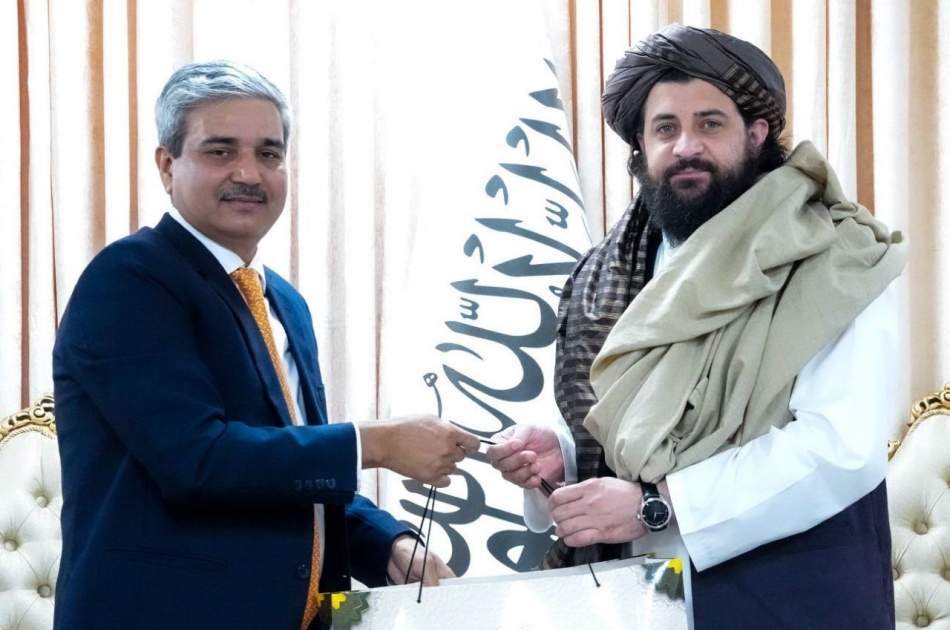Seyed Hamed Amini/ India's relations with Afghanistan have experienced many developments, especially after the Islamic Emirate government came to power in 2021. India, which was previously known as one of the main supporters of the Afghan government, adopted a cautious policy after the fall of the republic and minimized its relations with Kabul. However, the recent visit of the Indian delegation headed by the country's Deputy Foreign Minister to Kabul is a new development in India's foreign policy. This visit can be considered a turning point in redefining India-Islamic Emirate relations. This article examines various dimensions of India-Islamic Emirate relations, including political, economic, and security aspects, and analyzes the opportunities and challenges ahead.
Publish dateThursday 14 November 2024 - 18:26
Story Code : 300652
1. Moving beyond the policy of doubt and expectation: a change in India's approach
After the fall of the government of the Republic of Afghanistan and the rise of the Islamic Emirate, India adopted a cautious policy towards Afghanistan. New Delhi completely severed diplomatic relations, but maintained a limited embassy in Kabul to maintain its intelligence superiority. However, the recent visit of the Indian delegation to Kabul indicates a significant change in India’s policy. It seems that after more than three years of developments in Afghanistan, India has moved beyond the policy of hesitation and expectation and entered a new phase of engagement with the Afghan government.
In these meetings, the Indian delegation has spoken of resuming development assistance in various fields, including transit through Chabahar Port and dam and infrastructure projects. These developments indicate that India is gradually moving its relations with the Islamic Emirate from a cold state to one of interaction and cooperation.
2. Economic and infrastructure dimensions: Transit and dam projects
One of the important axes in the recent negotiations between India and the Islamic Emirate is economic and infrastructure projects. India has previously played a significant role in developing infrastructure in Afghanistan, investing in projects such as the Friendship Dam in Herat. However, promises of new projects, including the development of Chabahar Port in Iran, where India is a major investor, have not yet been fully realized.
Chabahar, due to its strategic location, could become a major transit hub for goods to Afghanistan, and India is planning to resume development assistance in this area. But there is still a long way to go before these promises are fully realized. India’s delay in implementing these projects may be due to internal and external reasons, and its serious involvement in these projects can be seen as a test of India’s commitment to Afghanistan.
During the republican era, India actively participated in the construction of the Farah-Delaram-Nimroz highway to accelerate Afghanistan’s connection to Iran and the Chabahar port and paid for it. However, in the current situation, when Afghanistan needs trade and transit with Iran, especially the Chabahar port, due to Pakistani obstructions, India can help activate this corridor as soon as possible.
3. Geopolitical and security challenges: Tension with Pakistan
India-Afghanistan relations have their own complexities at the geopolitical and security levels. One of the biggest challenges is India’s concern about Pakistan’s influence in Afghanistan and strengthening the Islamic Emirate’s security relations with Islamabad. Pakistan also has similar concerns. In a situation where, from Pakistan’s perspective, India is directly or indirectly involved in the unrest in Balochistan province, these concerns may lead to an escalation of tensions in the region.
In this regard, India is trying to exploit its influence in Afghanistan and strengthen its relations with the Islamic Emirate. This move by India may increase tensions between Kabul and Islamabad, which could have security and political consequences.
4. Transboundary waters and potential threats
Another important issue in India-Afghanistan relations is the issue of transboundary waters and shared water rights with Pakistan. India has previously worked on dam construction in Afghanistan, including the Friendship Dam in Herat. Given the sensitive location of the Afghan rivers flowing towards Pakistan, India may also be interested in assisting the Afghan government in dam construction projects on these rivers in the future, and this may face additional concerns from Pakistan, so it is necessary for the Afghan government to be vigilant in this regard.
It should be noted that, unlike the Helmand Water Treaty with the Islamic Republic of Iran, Afghanistan does not have any water treaty with Pakistan, and over the past years, ten times the amount of water that would have been used in the country and sent to other countries has flowed into Pakistani lands and farmlands. Therefore, water resource management for the water that flows into Pakistan, especially for power generation and irrigation, is a very important need, necessity, and priority.
Conclusion: Opportunities and Challenges in India-Afghanistan Relations
The recent visit of the Indian delegation to Kabul is an important step in redefining relations between India and the government of the Islamic Emirate of Afghanistan. These developments indicate that India is moving from a cautious policy to a serious engagement with Afghanistan. However, these relations must be carefully examined and given the existing challenges, including security tensions with Pakistan and economic and infrastructure issues.
In the economic field, cooperation between India and Afghanistan in infrastructure projects, especially in the field of transit through Chabahar and dam construction, can provide many opportunities to strengthen the Afghan economy. India should help to activate the Chabahar corridor to Afghanistan and Iran as soon as possible.
India and Afghanistan, as a key element in regional and global politics, require smart management and careful interaction to avoid becoming a factor of instability. It should be noted that any disruption of the balance in Afghanistan's relations with the two rival countries (India and Pakistan) will have serious consequences. This situation could lead to escalating border tensions, military action and political unrest in Afghanistan.
avapress.net/vdcftxdm0w6dxva.r7iw.html
Top hits







